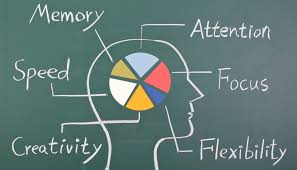Shades Off: Ditching Negative Thoughts with a Dash of Dark Humor
We've all been there - stuck in the quicksand of crappy thoughts, with our mental binoculars locked on the worst-case scenario. It's like trudging through a swamp while wearing sunglasses smeared with mud and pessimism. But what if you could wipe those lenses clean? Challenge those gloomy assumptions? Swap your Eeyore vision for something more realistic...and maybe even a little rose-tinted?
The Dark Side of Negative Thinking
Before we dive into the tools, let's talk about why it's so important to address those negative thought patterns in the first place. Getting stuck in the muck of negativity can have some serious consequences for both our mental and physical health.
Mental Health: When we let negative thoughts run the show, it can worsen depression, anxiety, and a host of other mental health challenges. It's like spinning your wheels in the mud - you're not getting anywhere, but you're digging yourself in deeper. Chronic negative thinking can even reshape our brains, making it harder to break free from those patterns over time.
Physical Health: Our minds and bodies are tightly tangled. When we're stuck in stress and negativity, it can manifest physically. Think headaches, tense muscles, a compromised immune system, and a higher risk of chronic diseases. It's like your body is hitting the panic button, but there's no actual emergency.
Relationships: Negativity can become a toxic cloud that follows you around, impacting how you interact with others. When you're fixated on the worst, you might become snappish, withdrawn, or just a general drag to be around. It's like those "wet blanket" characters in old novels - nobody wants to get too close.
Growth and Progress: Perhaps the biggest cost of negative thinking is that it keeps us stuck. When we're convinced the worst will happen, we're less likely to take risks, pursue goals, and step outside our comfort zones. It's like having one foot nailed to the floor - you can't move forward.
The Good News
Here's the silver lining - all of this is reversible. By learning to challenge and shift our negative thoughts, we can improve our mental and physical health, our relationships, and our ability to grow and thrive. It takes practice, patience, and a dash of self-compassion, but it's worth it to ditch those muddy lenses and start seeing the world with a little more clarity and hope.
The Power of a Question
Think of questions like mental wrenches - tools to pry loose those stuck, stinking thoughts. Here are six to get you started:
Am I making assumptions? Because, let's face it, our brains are like meaning-hungry wolverines. They'll cling to a assumption and run with it like a greyhound on a racetrack. But are you really clairvoyant, or just making (often crappy) guesses?
What are the other possible outcomes? Our brains have a nasty habit of fixating on the worst-case scenario. You know, the "I'm late, so I've definitely been fired, evicted, and will spend the rest of my life alone with 17 cats" spiral. But what about the other options? Maybe your boss is running late too, or stuck in traffic.
Is there another way to look at this? This is like hitting the refresh button on your thoughts. Instead of "I always fail," try "I messed up, but I can learn from this." Instead of "They hate me," try "They seem stressed, wonder what's going on with them?"
What would I say to a friend? We're often kinder to our buddies than to ourselves. If your pal was beating themselves up, you'd offer some supportive words, right? Try serving yourself a plate of that same compassion.
Is there evidence for or against this thought? This is like being a detective for your own brain. Are you building a case on flimsy assumptions, or solid facts? Would your theories hold up in court?
Will this matter six months from now? This is the ultimate perspective-checker. Will you still be fretting about this blip on the radar of your life? Probably not.
The Science Behind the Shift
This isn't just fluffy, feel-good stuff - there's hard science backing up the power of challenging negative thoughts. Cognitive Behavioral Therapy (CBT), a approach built on this very idea, is one of the most effective treatments for depression, anxiety, and a host of other mental health challenges. By learning to catch, challenge, and change our thoughts, we can reshuffle our brain's wiring and respond to the world in a more balanced way.
Putting it into Practice
Okay, this all sounds great on paper. But how do you actually do it when you're neck-deep in the muck of negative thinking? Here are a few strategies to get you started:
Mind your mind: Start by getting better at noticing when you're slipping into negative thought patterns. It might help to imagine a wise, witty narrator (think David Attenborough, or your sassy best friend) commenting on your thoughts.
Ask yourself those questions: When you catch yourself in a negative spiral, hit pause and run through those questions. It might feel a little clunky at first, but with practice, it'll get easier.
Practice, practice, practice: The more you challenge those negative thoughts, the more automatic it'll become. Try setting aside a few minutes each day to work through your thoughts.
Be kind to yourself: Remember, the goal isn't to flip from negative to positive - that's not realistic. It's to move from unhelpfully negative to more balanced and realistic. And hey, if all else fails, at least try to make yourself laugh.
The Takeaway
Negative thoughts are like those annoying relatives who just drop by uninvited - they'll always show up from time to time. But with a little practice and patience, you can learn to challenge them, wipe clean your mental lenses, and find a more balanced way of seeing the world. And who knows, you might just find a few things to be grateful for along the way.-Belle-










